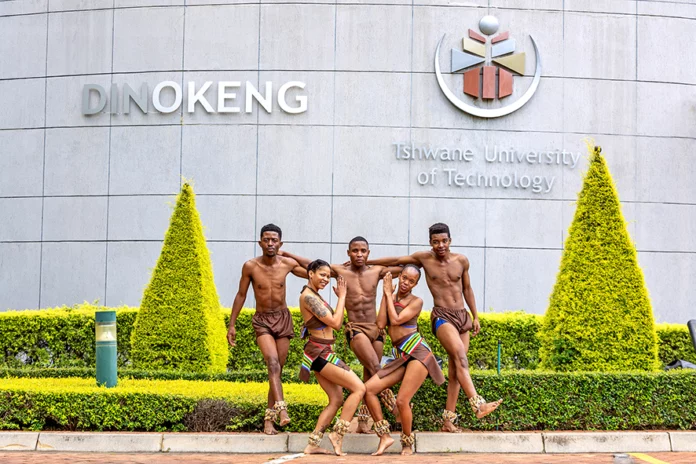Solomon Mahlangu and Steve Biko. Gqeberha and Johannesburg. Mathangetshitshi Junior Secondary School and Khalambazo township.
These are some of the names that took centre stage at a two-hour discussion on “the art of naming and renaming and its critical role in the transformation agenda” of South Africa, hosted by the Tshwane University of Technology, as it unveiled the new name of its administration hub at its Pretoria Campus this week.
No name was sacrosanct, including the name of the campus on which the discussion was held, with some students questioning the rationale of calling campuses by their location and the reason the administration hub with neutral name was prioritised over student residences bearing colonial names.
Author and children’s literature specialist Elinor Sisulu was one of the panel speakers. Her husband and former national assembly speaker Max Sisulu joined the university’s management led by principal and vice chancellor Prof Tinyiko Maluleke, academics, students, alumni, and labour representatives for the discussion held at Dikoneng Building, formerly Building 21.
Dr Tebogo Rakgogo, a lecturer in applied languages with a PhD in onomastics, set the cat among pigeons when he pointed out at some contradictions in South Africa’s naming and renaming project, which he warned may be counterproductive to the decolonisation and transformation agenda
“One of the issues that were severely affected by colonisation in this country is proper names, some names were changed simply because colonisers struggled with their pronunciation,” he said giving the example of Tsaneng, still known as Tzaneen even after the 1994 democratic dispensation.
Rakgogo, a board member of the Pan South African Language Board, said the names of struggle icons such as Biko and Mahlangu were problematic.
“There are those who postulate that Mahlangu did not prefer the name Solomon, but Kalushi and as part of transforming and decolonising, the South African higher education sector needs to have a conversation about this. In Pretoria Central there’s the Steve Biko Academic Hospital or Steve Biko Road, but his first name was Bantu,” he said.
Rakgogo added that with the high rate of gender-based violence, there’s a need to examine the names of townships, adding that some names are inappropriate and vulgar such Ingquza in Eastern Cape.
“We also have a responsibility to address some of the names that are offensive and derogatory to women. One of the high schools in KwaZulu-Natal is called Mathangetshitshi, meaning thighs of a virgin. You have Mshayazafe [beat him/her to death],” he said.
Sisulu warned against naming spaces and places after politicians who are still alive. “Once they are gone, the book is closed you know exactly what you are naming after,” she said.
She emphasised that a name is just the first step; it is an aspiration. “You have to go beyond the name and make the place live up to the name. Author Sindiwe Magona always says when ‘I die I don’t want anything named after me. Just leave my name alone. [You’ll] name a school after me and that school is neglected, and the children there do not learn.
“Like Chris Hani-Baragwanath Hospital, would you want to step in that hospital and be happy that it is named after you?” she asked.
Responding to a question from a student about the universities’ campuses named by their geographic location, Rakgopo said: “When we are done with the system; we can attempt to address the issue of campuses.
“The point of departure is to deal with Johannesburg, Cape Town, we still have your untouchable cities. If Port Elizabeth can be renamed to Gqeberha why is Joburg untouchable?,” he said.
Prof Mashupye Maserumule, the executive dean of the faculty of humanities, who was facilitating the discussion, said the trend is to write biography and autobiography. “We should go beyond that. Let’s theorise the characters of these people so that they can be the mainstream of our teaching in our lecture halls.”
Follow @SundayWorldZA on Twitter and @sundayworldza on Instagram, or like our Facebook Page, Sunday World, by clicking here for the latest breaking news in South Africa. To Subscribe to Sunday World, click here.



